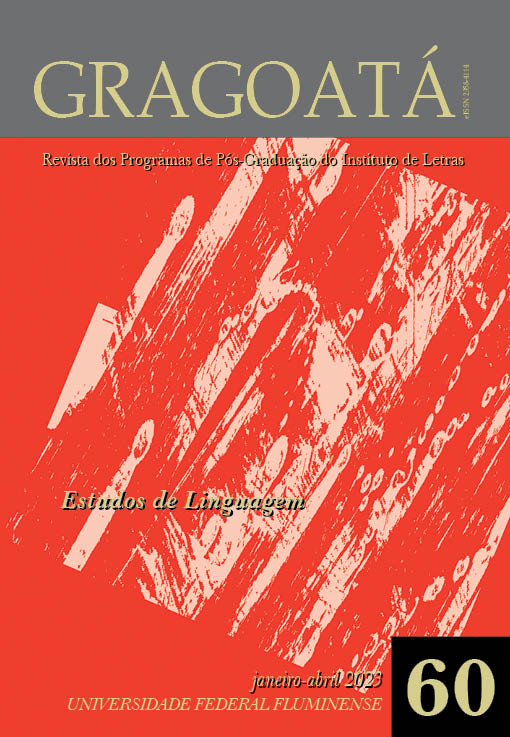Language, neoliberalism, and human rights: Erotics of signs on a dating app
DOI :
https://doi.org/10.22409/gragoata.v28i60.53406Mots-clés :
Human Rights, Grindr, Neoliberalism, Erotics of signs, Indexicality, Applied LinguisticsRésumé
This paper aims to address the naturalization of a neoliberal individualism online, the performance of profound inequality as a sexualized stylistic resource, and the equalization of capital and sexual relations. This is done by highlighting the kinship between the Universal Declaration of Human Rights and Neoliberalism. We then argue that Grindr is designed to keep us coming back to it, subjecting us to misconduct by the app developers. We then proceed to report on the data generated by the erotics of signs (BONFANTE, 2016), methodology that highlights sexual-capital performances which bring two related phenomena to our attention: the spread of neoliberal practices on Grindr and the dissemination of the perspective of sex as a commercial good. Finally, we consider the ethical and epistemological gains of our paper.
Téléchargements
Téléchargements
Publiée
Numéro
Rubrique
Licence
(c) Copyright Gragoatá 2023

Ce travail est disponible sous la licence Creative Commons Attribution 4.0 International .
AUTORIZAÇÃO
Autores que publicam em Gragoatá concordam com os seguintes termos:
Os autores mantêm os direitos e cedem à revista o direito à primeira publicação, simultaneamente submetido a uma licença Creative Commons Atribuição 4.0 Internacional (CC BY 4.0), que permite o compartilhamento por terceiros com a devida menção ao autor e à primeira publicação pela Gragoatá.
Os autores podem entrar em acordos contratuais adicionais e separados para a distribuição não exclusiva da versão publicada da obra (por exemplo, postá-la em um repositório institucional ou publicá-la em um livro), com o reconhecimento de sua publicação inicial na Gragoatá.
A Gragoatá utiliza uma Licença Creative Commons - Atribuição CC BY 4.0 Internacional.











